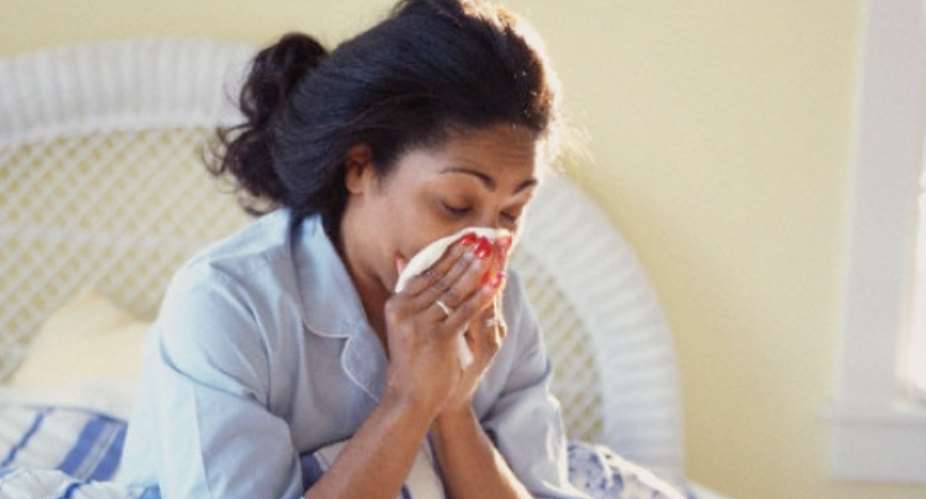Taking ginger or using acupressure on the wrist may help some women with mild morning sickness, the Royal College of Obstetricians and Gynaecologists (RCOG) says.
Its guidance suggests these therapies could offer alternatives to women who want to avoid medication.
But it says anti-sickness drugs and hospital treatment are important in more severe cases.
The recommendations are in line with advice from NHS watchdog NICE.
Nausea and vomiting affects about 80% of pregnant women.
‘Lack of understanding’
For many, it disappears within the first four months – though symptoms are not confined to the morning hours as its commonly used name suggests.
In its first guidance on the issue, the RCOG says treatment can vary around the UK and there is an occasional lack of understanding of the condition’s severity.
Its guidelines weigh up the evidence for a range of treatments – including complementary therapies – and set out specific options depending on how severe the condition is.
Anti-sickness drugs can help in the many cases, it says.
And some women may need day visits to hospitals or longer admissions for fluids and medication.
Ginger biscuits
Meanwhile, for women with mild or moderate symptoms who do not want to use drugs, acupressure (wearing a special bracelet that applies pressure) may help.
The guidance also mentions studies showing that ginger can provide some relief – including one study using ginger biscuits.
But NHS Choices warns that as ginger products are not licensed for medical use in the UK, supplements should be bought only from reputable sources.
And anyone still experiencing problems should seek medical advice.
Meanwhile, the RCOG says hypnosis is not recommended as there is not enough evidence to establish whether it is effective.
For women with more difficult symptoms, including a very severe form, known as hyperemesis gravidarum (HG), specialist treatment, including hospital admission and mental health support, should be offered, it suggests.
Caitlin Dean, who chairs the Pregnancy Sickness Support charity and had HG in three pregnancies, said: “On top of the nausea and vomiting (this could be up to 30 times a day), I had a pounding headache, incredibly heightened sense of smell and excessive saliva.
“My days would be spent lying in bed with a quiet audio-book as I couldn’t read or watch TV because it all made me sick.
“I soon became very dehydrated and was admitted to hospital at eight weeks pregnant.
“I was housebound for most of the pregnancy, which made me feel incredibly lonely.”
Dr Manjeet Shehmar, lead author of the guidelines, said many women with persistent symptoms were not receiving the treatment they needed.
“Women with persistent nausea can often feel that there is a lack of understanding of their condition,” she said.
“They may be unable to eat healthily, have to take time off work and feel a sense of grief or loss for what they perceive to be a normal pregnancy.
“It is therefore vital that women with this condition are given the right information and support and are made aware of the therapeutic and alternative therapies available to help them cope.”
–





 Akufo-Addo commissions Phase II of Kaleo solar power plant
Akufo-Addo commissions Phase II of Kaleo solar power plant
 NDC panics over Bawumia’s visit to Pope Francis
NDC panics over Bawumia’s visit to Pope Francis
 EC blasts Mahama over “false” claims on recruitment of Returning Officers
EC blasts Mahama over “false” claims on recruitment of Returning Officers
 Lands Minister gives ultimatum to Future Global Resources to revamp Prestea/Bogo...
Lands Minister gives ultimatum to Future Global Resources to revamp Prestea/Bogo...
 Wa Naa appeals to Akufo-Addo to audit state lands in Wa
Wa Naa appeals to Akufo-Addo to audit state lands in Wa
 Prof Opoku-Agyemang misunderstood Bawumia’s ‘driver mate’ analogy – Miracles Abo...
Prof Opoku-Agyemang misunderstood Bawumia’s ‘driver mate’ analogy – Miracles Abo...
 EU confident Ghana will not sign Anti-LGBTQI Bill
EU confident Ghana will not sign Anti-LGBTQI Bill
 Suspend implementation of Planting for Food and Jobs for 2024 - Stakeholders
Suspend implementation of Planting for Food and Jobs for 2024 - Stakeholders
 Tema West Municipal Assembly gets Ghana's First Female Aircraft Marshaller as ne...
Tema West Municipal Assembly gets Ghana's First Female Aircraft Marshaller as ne...
 Dumsor is affecting us double, release timetable – Disability Federation to ECG
Dumsor is affecting us double, release timetable – Disability Federation to ECG
